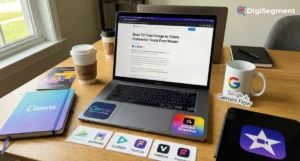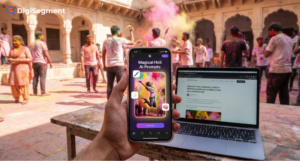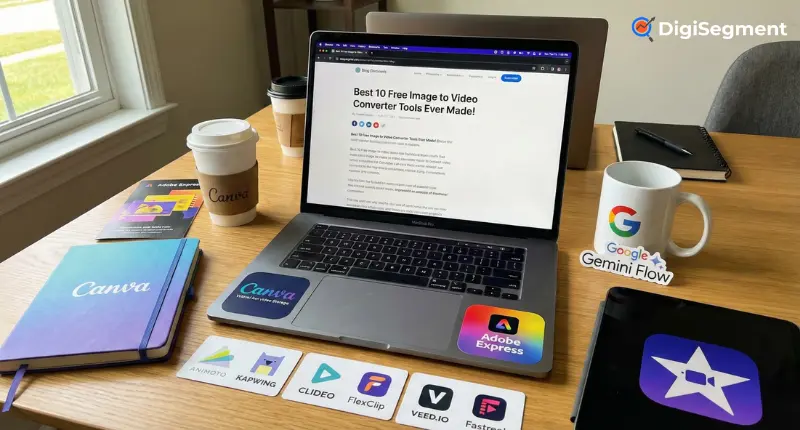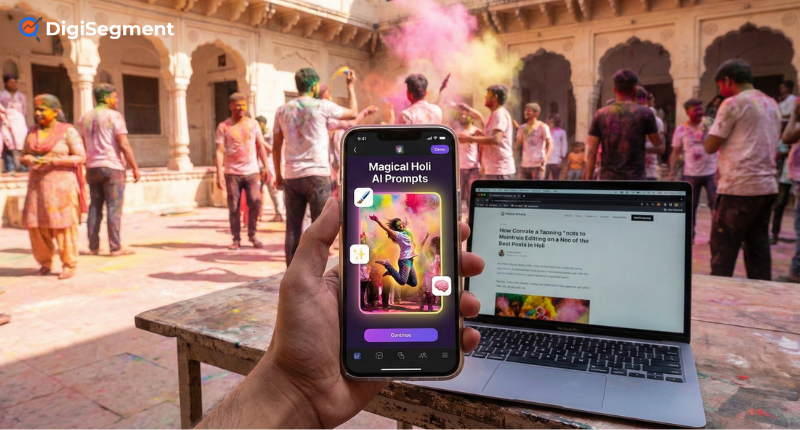Welcome to Digi Segment — your go-to resource for learning about digital marketing blogs and how blogging can help expand your business.
Blogging has become a more powerful tool than ever for digital marketing in today’s online-driven world. Whether you are a small business owner, student, or working professional living in a metro city, this guide will help you understand what blogging is, why it is important, and how to begin your journey.
Let’s get started!
What Is Blogging in Digital Marketing?
What is blogging in digital marketing?
Blogging in digital marketing is publishing and updating content regularly on your website to attract, educate, and engage potential leads. A blog serves as a digital platform where businesses share valuable insights and information with their audience.
Through blogging, you can:
- Publish useful content for your visitors
- Enhance your site’s search engine optimization (SEO)
- Establish your company as a thought leader
What Is a Blog?
A blog consists of written posts, images, videos, or infographics, published regularly on a website. It enables businesses to engage and connect with their intended audience.
It’s like having a conversation with your readers.
Blogs are informal, informative, and interactive. Readers can leave comments and ask questions, making it a two-way communication tool.
If you’re wondering what is blog in computer, it’s simply a web-based platform where individuals or businesses share content online.
Why Blogging Matters in Digital Marketing
Blogging is among the best digital marketing blog topics because it increases visibility. Whether you have a small business or a large company, blogging enables you to rank on Google and target your audience.
Advantages of Blogging in Digital Marketing
1. Enhances SEO Rankings
Search engines prefer fresh content. Consistent blogs with specific keywords help you rise in Google’s rankings.
2. Organic Traffic
Good blogs attract many visitors without paid ads. The greater the value of your blog, the more traffic it will attract.
3. Establishes Trust and Authority
Publishing useful content builds trust with your readers. They’ll view your website as an expert in your niche.
4. Generates Leads
With each helpful post, you can include links to products, services, or email opt-ins. This turns visitors into leads.
5. Simple to Promote
Blogs can be promoted on social media, via emails, or through digital marketing guest post contributions.
6. Source of Income
As your blog grows, you can monetize it through affiliate links, advertisements, and sponsored posts.
Types of Blogs in Digital Marketing
Different types of blogs serve different purposes. Some popular types of blogs are:
- Educational Blogs – Teach readers about your business
- How-To Guides – Step-by-step instructional guides
- Product Reviews – In-depth analysis of products
- Personal Stories – Share your personal journey
- Guest Posts – Articles by others in your industry
Want more digital marketing blog topics? Visit Digi Segment regularly for new ones.
Features of a Blog
To succeed, a blog consists of:
- Regular updates
- Useful information
- Easy-to-read layout
- Reader interaction
- Visuals (images, videos)
Blogging Is a Highly Useful Tool
Why? Because it generates organic traffic, builds relationships, and increases sales.
Remember, blogging is a very effective tool for turning readers into loyal customers.
How to Begin Blogging in Digital Marketing
1. Select a Blogging Platform
Some popular blogging platforms are:
- WordPress
- Blogger
- Wix
- Medium
- Substack
Choose the platform that matches your needs.
2. Select Your Niche
Pick a niche you’re passionate about that aligns with your target audience’s needs.
3. Optimize for SEO
- Incorporate targeted keywords such as ‘what is blogging in digital marketing’ to enhance visibility.
- Write SEO-friendly titles and meta descriptions
- Ensure your site loads quickly
4. Blog Often
Consistency matters. Create a content calendar to stay organized.
5. Get Your Blog Out There
Promote your blog on:
- Social media
- Email newsletters
- Collaborate with other bloggers
6. Track Performance
Use Google Analytics to monitor:
- Traffic
- Bounce rate
- Average time on site
Blogging and Digital Marketing Agencies
If you don’t have time, hire a digital marketing agency blog team to manage content creation and SEO.
Need assistance? Visit Digi Segment for help.
Frequently Asked Questions (FAQs) on Blogging
What Are Blogs and How Are They Beneficial?
What Is Blogging? What Are the Benefits and Drawbacks?
Define the Reason for Starting a Blog
Which of the Following Is Not Used as Blogging Platform?
Final Thoughts
What is blogging in digital marketing? It’s the secret ingredient behind successful online businesses.
Want to start your own blog or need help with digital marketing blogs? Visit Digi Segment and begin your journey today.
I’m Hardik Vaghani, founder of HV Digital Marketing, a results-driven digital marketing agency. I specialise in SEO, Google Ads, and social media marketing, helping businesses grow their online presence with proven strategies. I’m passionate about creating high-quality, SEO-optimised blogs that educate readers and rank on Google. My goal is to turn ideas into measurable digital success through smart, ethical marketing.













